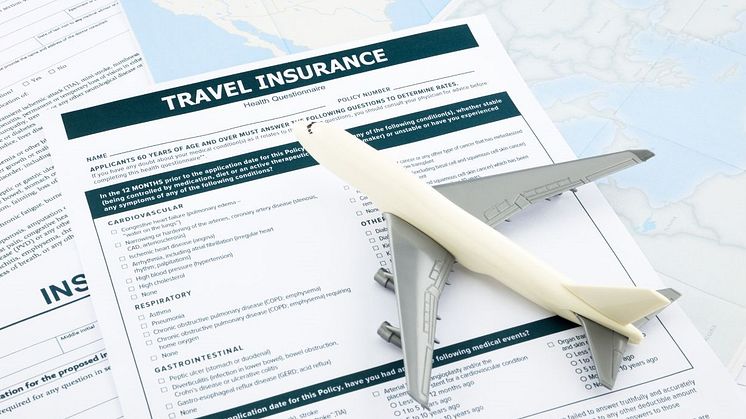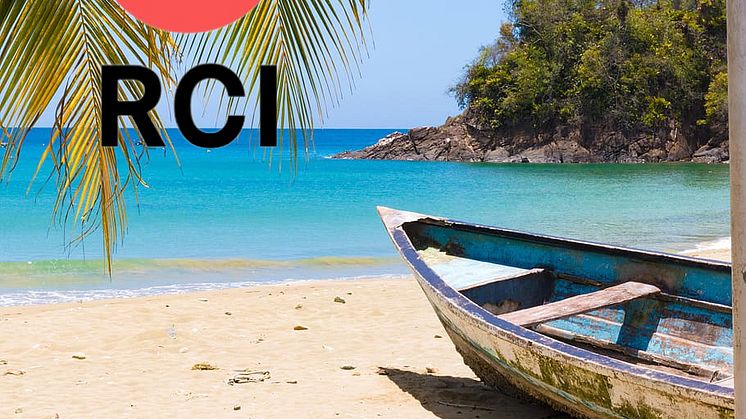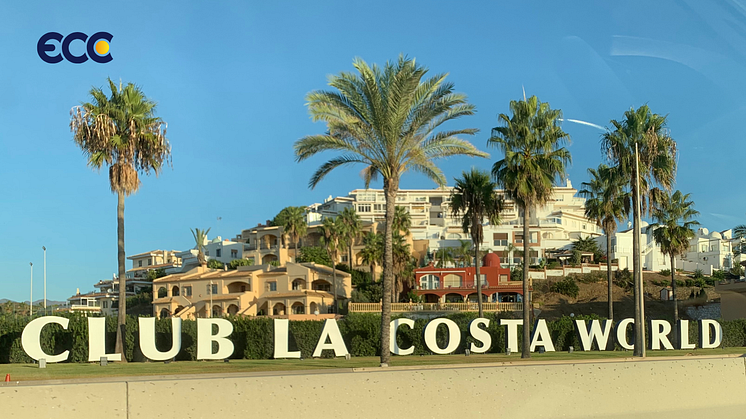
Press release -
The real pros and cons of owning a timeshare
Holidaymakers in 2023 tend to regard timeshare as outmoded, dated, expensive and inefficient. But 20 million households worldwide holiday through some version of holiday ownership. So what are the real arguments for and against?
Background
Timeshare took its first hesitant steps the 1960s, but flourished with the expansion of foreign holiday travel. Package tour companies in the 1980s and 1990s presented glossy brochures of hotels that turned out to be disappointing in real life. Dissatisfied holidaymakers were targeted en masse and hundreds of millions of pounds were made by an aggressive timeshare industry dangling the carrots of high standard accommodation and exclusivity.
Timeshare might have a dubious reputation, but it has its advocates too. Are these people who are 'sticking to their guns' because they are trapped in inescapable timeshare contracts? Or are there genuinely great reasons to choose timeshare schemes over regular holidays? Timeshare Advice Centre (TAC) examines the pros and cons:
Pros:

There is no doubt about it. Timeshare owners loved what they saw or they wouldn't have spent tens of thousands of pounds to join a costly holiday scheme. Here are the Pros that have enticed 10 million people to sign up to timeshare memberships:
-
Exclusivity
- Timeshare resorts were sold as private, 'members only' clubs. If you were not a member, you couldn't holiday in these luxury complexes. As the movie says: "who doesn't want to walk through a door marked 'private'?" People holidaying in timeshare resorts knew that everyone else there had made a significant financial commitment to becoming members. People who make these kind of commitments tend to respect both the resort itself, and one another.
-
Superior standards
- This was the big one. Package tour holidaymakers were arriving in droves to tired, shoddy, cramped apartments that had looked so much bigger and more modern thanks to clever photography in the brochures. Brits in particular put a brave face on it. "It's just a roof over our head while we sleep. We'll be out most of the time anyway..." But this was rationalisation. When these same people were shown the higher standards and superior amenities of timeshare clubs, they wanted in. And they were prepared to pay.
-
Standard guarantee everywhere/exchange systems
- It wasn't just your home resort that was superior. Networks of thousands of timeshare resorts were linked via exchange systems. This meant that you could stay in any of over 4000 other resorts, in around 100 countries and be guaranteed similar high standards. A whole world of luxury holiday resorts? What's not to love?
-
Better value/lower long term cost
- Wait... better standard and lower cost? How is that possible? Timeshare was sold as owning rather than renting. The upfront costs of buying the membership were high. Thousands or even tens of thousands of pounds. But it was billed as 'paying for all your future holidays up front' at today's prices.' Most forms of ownership (cars, houses etc) have a lower long term cost than renting, and once the big upfront fee is paid, there are just minimal annual charges to cover maintenance of the resort.
-
Pride of ownership
- Instead of booking from a brochure and renting an apartment they don't know much about, timeshare owners are holidaying in their 'home resort'. Potentially (especially with the original fixed week ownerships) in the same apartment in the same week of the year. The comparison can be made to owning your own car vs renting. It makes little difference in the practical day to day use of the vehicle. But you know that it's yours.
-
Investment potential
- This does not apply to every type of membership. But the 1980s and 1990s many resorts sold heavily on the idea that the timeshare members were basically dividing ownership of an apartment into 52 'shares', or 'weeks'. That way they had the benefits of ownership, but not the expense of owning the whole property. They were in effect only paying for what they would use. However the association with property often promised a better potential for value retention (and maybe profit) than renting regular holidays. Particular in recent variations of membership called 'Fractionals'.
-
Makes you take holidays
- Many a workaholic has cited this as the principal reason they paid to join a timeshare scheme. The fact that they have paid in advance for their holiday will force them to make the time to travel and spend time with their family or partner. With regular holiday booking many of these type of person puts booking the holiday off until they miss it entirely year after year. With a pre-booked holiday, that is less likely to happen. Time spent together in a stress free environment with loved ones is seldom wasted. In a way, for these customers, the cost of the timeshare is an investment in their relationship, their health and their wellbeing.
Cons:

The sharp eyed reader will notice that the Cons listed below are largely the inverse of the Pros. That is to say that the people who argue against timeshare do so mainly on the premise that the purported selling points do not stand up under examination.
So, let's examine the counter-contentions one by one.
-
Exclusivity
- Yes, timeshare resorts were originally exclusive. Then the massive decline in new member sales meant that many units were left empty, costing money but generating no income. One by one the timeshare operators opened their doors to regular holidaymakers. Nowadays non-members can book into just about every timeshare resort through sites like booking.com. And they pay around what a member pays in annual fees, despite not having had to pay to join the club. This has left many timeshare owners angry and questioning why they had to pay expensive, upfront joining fees.
-
Superior standards
- It is beyond question that standards were superior at timeshare resorts in the 1980s and 1990s. Observers point out that this no longer seems to be the case. When timeshare sales operations were flourishing, business was usually conducted onsite, meaning the resort was also the 'product display.' Since the end of (meaningful) new member sales, cynics claim that there is no longer an incentive for the business to maintain such high standards of maintenance and upkeep.
-
Standard guarantee everywhere/exchange systems
- With the advent of Tripadvisor and similar public review sites, there is plenty of reliable and accurate feedback on hotels and holiday accommodation freely available online. This negates the need to join an expensive holiday scheme to guarantee a high standard. Especially as people can actually book into the timeshare units themselves if desired.
- With the lack of need for an exchange network to guarantee standards elsewhere, the systems have now become a limitation rather than a sales feature. Owners say they are able to book their preferred choice less than 1% of the time. While non-owners can now get accommodation whenever and wherever they want, with a clear idea of the standard before they book.
-
Better value/lower long term cost
- Experts hold that the maths simply don't add up to support this claim. With the originally marketed timeshares in the 1960s, maintenance fees were low enough (compared to equivalent accommodation booking fees) that over time it was potentially possible to recoup the initial outlay. However since those early days maintenance fees have spiralled out of control and are generally around the same cost as non members pay to stay in the same apartments. When the joining fee is added on, the overall cost is considerably higher than holidaying through regular booking sites.
- Timeshare maintenance fees are uncapped. Members have to pay whatever the resort requests, and they have to pay every year whether they holiday or not. There is no way for a member to take advantage of holiday deals, or new great value destinations. This lack of flexibility in itself could be argued to make timeshare holidays worse value than the general market.
-
Pride of ownership/investment potential
- It is becoming clearer and clearer that timeshare owners don't own anything related to property. Their membership is a commitment to pay to use a certain property (or properties) for an amount of years. The correct term is 'right to rotational occupancy'. Because there is no property ownership, the timeshare purchase becomes financially worthless the moment it is bought. In fact, not only is it difficult to sell, but most people who want to cancel their membership have to pay for expert help to do so.
- Fractional ownerships offered a solution whereby owners were purportedly buying a deeded share of a property. The implication was that because the membership was based on actual bricks-and-mortar ownership, that it would be a genuine investment. For various reasons Fractionals failed to deliver. TAC has yet to hear of a single case where an owner made money, or even got money back from a fractional ownership.
-
Makes you take holidays
- Timeshare ownership only makes people pay for holidays, not take them. Many owners confide to TACthat they committed to a timeshare purchase that they couldn't really afford by getting caught up in the slick sales presentation. Years later, many people report that the high costs of finance and annual fees mean they can't afford to actually travel and use the timeshare.
Unrelated Cons:
-
High pressure sales
- Many owners report having been rushed into a decision. People claim that they were not left alone to discuss the commitment in private, nor were they given time to read documentation or consider the implications of such a large purchase.
- This type of urgency indicates an emotionally charged sale, and a corresponding likelihood of regretting the purchase later. TAC has never heard of a timeshare owner who saw an advert on TV or other media, then approached the company themselves with a view to buy. If a product requires this level of intensity and aggression with its marketing and sales, can it really present value?
-
Not possible to leave?
- Whether people enjoy the membership or not, there is no easy way to leave. There is no pretence of a win-win partnership. The resort will use all legal means at its disposal to make members pay, whether they are happy or not, whether they can afford it or not. The resort can raise the fees by whatever amount they see fit, and if someone disagrees tries not to pay, they will be forced to do so.
-
Inflexibility
- The world of holidays is opening up more every year. New destinations and types of holiday are available, as are new ways to book and travel. Timeshare owners are buying into a system that forces them to predict their holiday patterns years from now. They can no longer be spontaneous, and decide to go next week/not at all/ to a new destination/to split their time between a few days in different locations. Timeshare has made attempts to evolve, but it can never match the pure, click-and-book freedom enjoyed by today's holiday consumer.
Need help?
If you are trapped paying for a timeshare that you no longer want or need, get in touch with our team for advice on your options.

Related links
- Most timeshare resorts can be booked online without joining
- Club La Costa. Customer service likened to an old time comedy show by disappointed members
- 5 sublime holiday destinations that are unavailable to timeshare owners
- Is timeshare good value?
- Timeshare exchange system failures highlighted by COVID and Ukraine war
- Is timeshare a thing of the past?
- Book your timeshare holiday.... on Booking.com
- Timeshare resorts slashing services and facilities as they cease sales operations
- Fractional ownership: The new face of timeshare
- Why did people buy timeshares, and more puzzlingly why do they stay members?
- Timeshare Advice Centre
- European Consumer Claims
Topics
Categories
Regions
TAC provides timeshare claims services, relinquishments expert advice and help
E: (for media enquiries): mark.jobling@ecc-eu.com
T: (for media enquiries): +44 2039962044
E: (for client enquiries) EUROPE: info@timeshareadvicecentre.co.uk USA: info@timeshareadvicecentre.us
T: EUROPE: +44 800 102 6070/+44 203 807 3388. USA: 1-888 203 5448/ 1-332 867 1213
Monday to Friday: UK timings: 9am-8pm. Saturday/Sunday closed. USA 9am -8pm EST. Sunday closed
Follow Timeshare Advice Centre UK on Facebook here. Timeshare Advice Centre US here
Follow Timeshare Advice Centre UK on Twitter here. Timeshare Advice Centre US here
Relevant websites for this article
www.timeshareadvicecentre.co.uk































